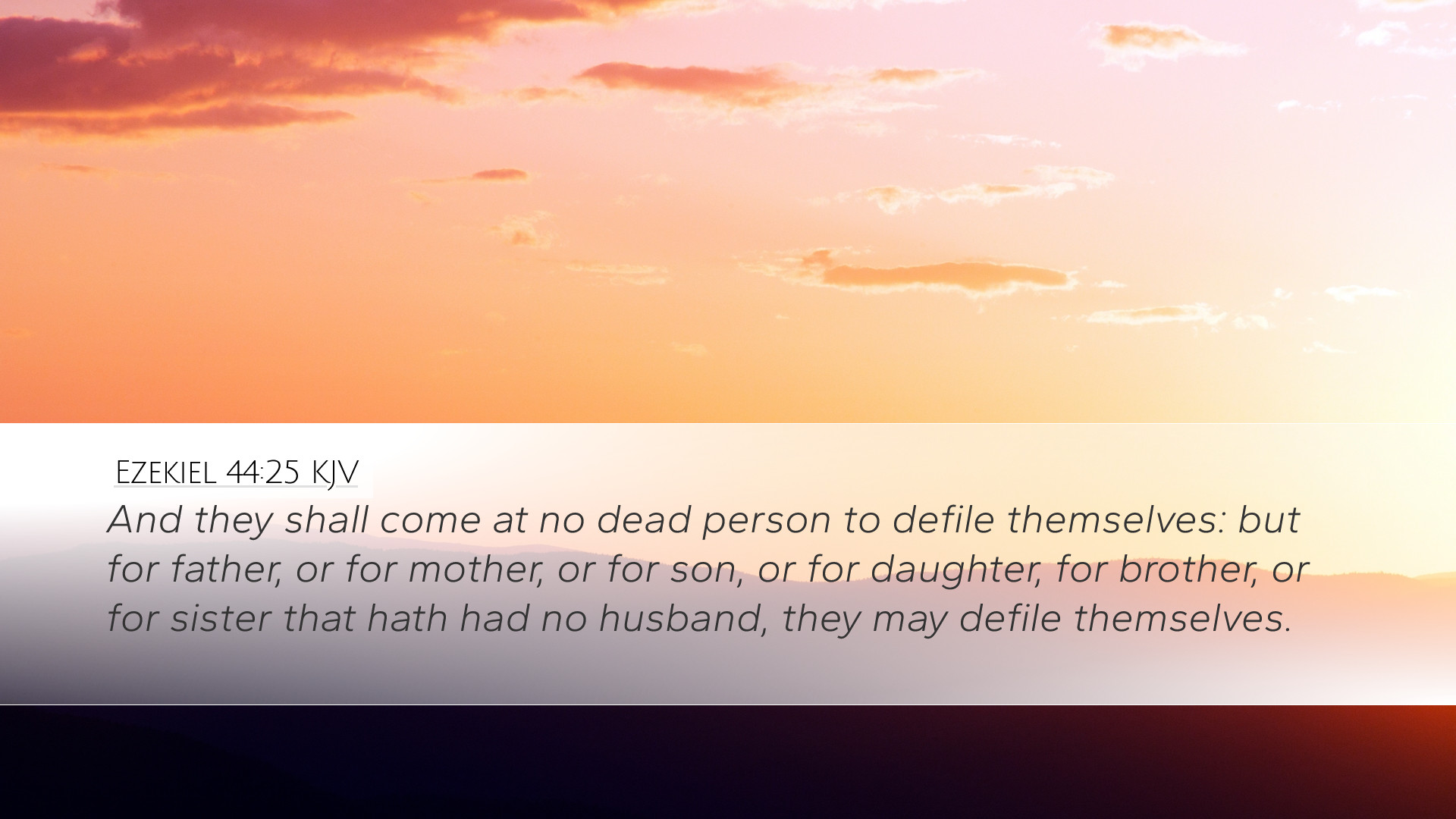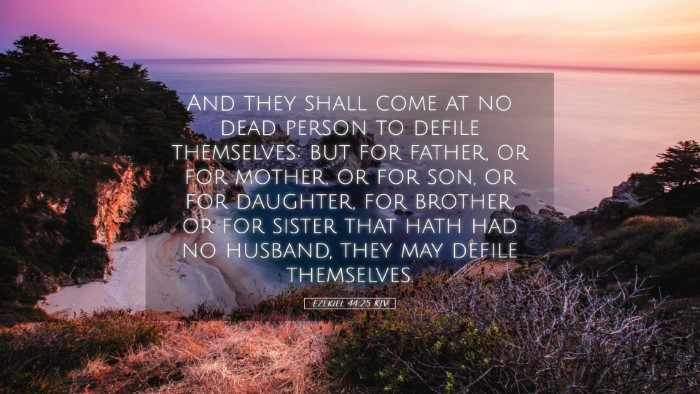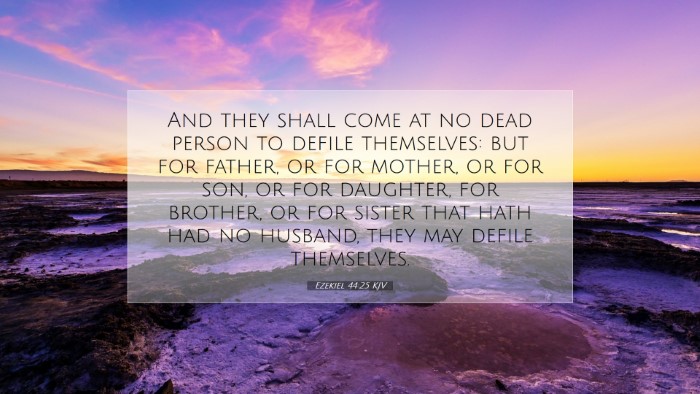Ezekiel 44:25 Commentary
Ezekiel 44:25 states: "And they shall come at no dead person to defile themselves; but for father, or for mother, or for son, or for daughter, for brother, or for sister that hath had no husband, they may defile themselves."
Introduction
The prophet Ezekiel, in his detailed vision of the temple, lays out responsibilities, rituals, and regulations for the priests. Ezekiel 44:25 presents a significant aspect of the holiness code, emphasizing the sanctity of the priestly lineage and their separation from death. This passage provides insight into priestly duties and restrictions, which hold relevance for contemporary understanding of holiness and ministry.
Historical Context
The significance of this command must be understood in the ancient Israelite cultural and theological context. Priests were regarded as mediators between God and the people, which required them to maintain a state of ritual purity. As Matthew Henry notes, “the priests were to be holy in all their ways and in all their services.” Keeping away from corpses was essential for maintaining that purity.
Priestly Duty and Holiness
Ezekiel’s admonition speaks to the uniqueness of the priest’s role in the community. Albert Barnes highlights that “death was the emblem of sin,” signifying that contact with dead bodies would taint the priest's ability to serve God effectively. This speaks to the greater theological point concerning the nature of holiness and the seriousness with which the Israelites were to regard their relationship with God.
Theological Insights
Separation from Death
The directive to avoid contact with the dead emphasizes the need for spiritual vigilance and moral purity. Adam Clarke elucidates that these strictures are indicative of God’s covenant relationship with Israel, where the priests symbolize holiness. The separation from death represents a broader spiritual truth: that life in communion with God is distinct from the reality of death brought by sin.
Compassion vs. Consecration
Interestingly, the passage does allow for exceptions when mourning close relatives. This highlights a balance between duty and compassion. Matthew Henry points out that the priest’s obligation to serve does not come at the expense of familial love and respect. This provision reflects God’s understanding of human emotions and responsibilities: “God does not require of men that which is contrary to the natural affections of their hearts.”
Modern Implications for Ministry
For contemporary pastors and ministers, Ezekiel 44:25 can serve as a reminder of the balance between personal sacrifice and community connection. In the pursuit of holiness, it is essential to remain accessible and compassionate. This calls for a thoughtful understanding of how personal loss and grief can intersect with ministry roles.
Application in Leadership
As church leaders navigate their responsibilities, there is a call to uphold holiness while also being fully engaged with the life experiences of the community. The passage reminds us that while the ministry requires a commitment to spiritual integrity, it is also marked by empathy towards human experiences.
Conclusion
Ezekiel 44:25 offers profound insights into the priestly identity and the call to holiness that is intrinsic to the service of God. By maintaining a balance between ritual purity and personal relationships, priests (and modern-day ministers) are invited to embody a grace that reflects God’s character.
Reflection Questions
- How do you balance the demands of your ministerial responsibilities with personal and familial obligations?
- What does it mean for you to navigate the tension between spiritual purity and human experience in your service?
- In what ways can the modern church reflect the compassion expressed in Ezekiel’s vision of holiness?


